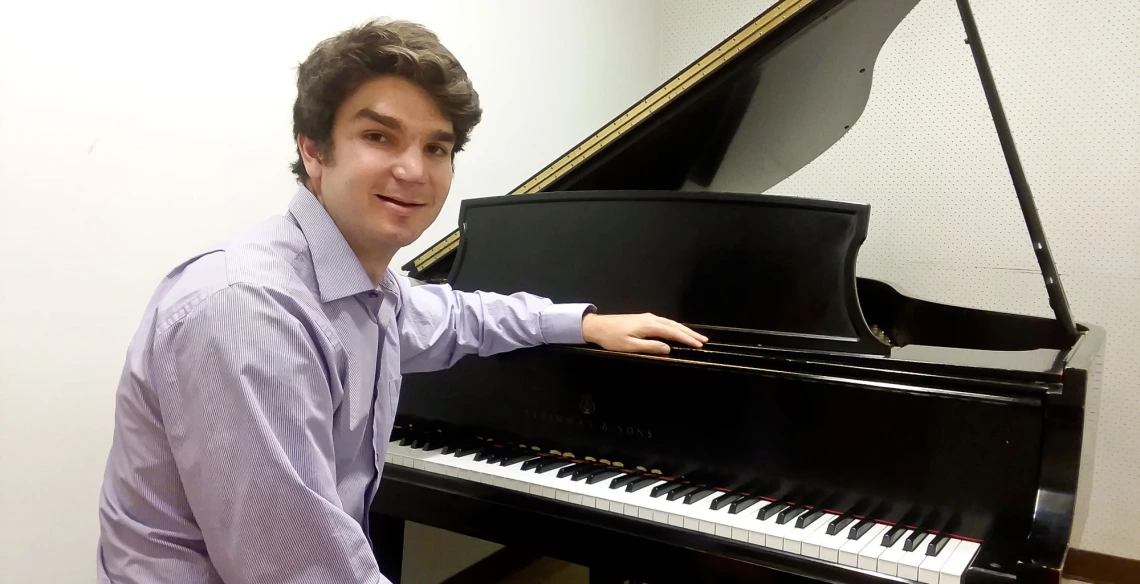Double Major Bridges Piano and Engineering
UA student Gabriel Schirn is devoted to music. His passion for STEM disciplines, coupled with a desire for a stable livelihood, also steered him toward engineering.

Gabriel Schirn
Gabriel Schirn understands the parallels between piano performance and chemical engineering.
“They each require precision, persistence, conceptual learning, creativity and the willingness to move outside of your comfort zone,” said Schirn, who expects to complete bachelor’s degrees in both at the University of Arizona by 2020.
Schirn began studying piano seriously at age 12, although math, science, chemistry and especially physics were his favorite subjects in high school.
“I love how physics translates physical events into concrete math and offers reasons why nature behaves the way it does,” he said.
Music, however, is in Schirn’s DNA. His mother and paternal grandmother were accomplished pianists, and his father guided him to particular classical music pieces.
“My father didn’t play a musical instrument, but he would listen to classical music for hours at a time, mostly opera, completely focused,” said Schirn.
Taking Direction From CHEE Professor
Schirn, who concluded that making music might not be the most reliable way to make a living, discovered the versatility of chemical engineering in the introductory course Elements of Chemical Engineering, or CHEE 201. University Distinguished Professor Paul Blowers, a campus leader in collaborative learning methods, taught the class. Coincidentally, Blowers has been teaching himself to play piano.
“I loved the course so much I wanted to take all the CHEE courses,” said Schirn, who is balancing the two majors successfully. He is an Honors College student and has received the Yavapai Symphony Association Scholarship as well as the Wildcat Excellence Award, a highly competitive UA tuition scholarship.
As he prepared to perform Beethoven’s “Emperor Concerto,” Schirn borrowed a technique from Blowers’ class. He used chunking and divided the long and difficult piece into parts, studying one part at a time before finally putting it all together.
Finding His Rhythm, and a Deeper Purpose
“There’s a vulnerability where you may not grasp things completely. You might be uncomfortable with a certain idea or interpretation,” he said. “But the important thing is to continue working and applying yourself to the problem or piece of music and trust the process.”
Schirn’s connection between music and engineering also extends to an understanding of our basic needs as human beings.
“Engineers need music. And musicians can’t go on without all the ways engineers help us live our lives,” he said.

